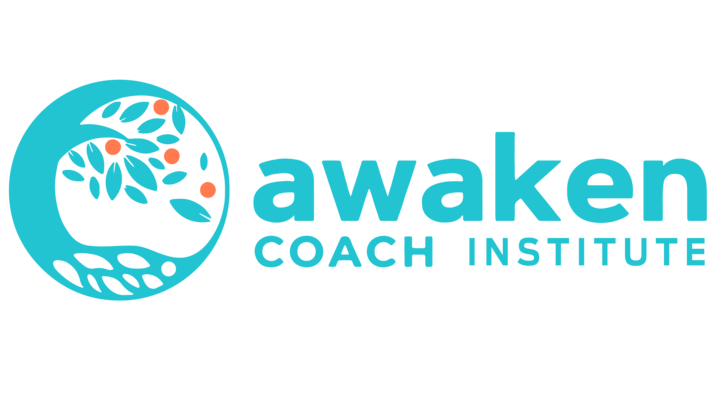What do professional coaches listen for?
Some of you have expressed interest in finding out what exactly happens in a professional coaching conversation. What makes it different from the way a friend would listen?
In the coaching process, after connecting human-to-human, the coach's main focus at the beginning of a conversation is, "What is the desire? What is the objective of this conversation?" "What opportunities are wanting to emerge now?"
Yet what often happens is, that a conversation may start with venting... the client comes in upset, saying that the boss is a jerk, the spouse is doing annoying things, the kids are doing annoying things, and there's so much drama! People are being persecuted, people are victims, people need rescuing...
A coach can listen to a bit of drama, but unlike in many friendships, we don't get caught up in the content. We listen just enough to let the client know that they are heard, felt, and understood. However, a good coach would NOT follow up with curiosity questions such as, "Then, what did he do? Then, what did she say?" because getting into the content of drama will do nothing for the conversation partner.
Coaches really want to find out what awarenesses the client can come to, and how their lives can be different because of that awareness.
After any necessary venting is done and the conversation objective has been established, then as coaches, we can go into a deeper level in the conversation: behaviors, thoughts, and feelings.
We want to now listen to the client's behaviors. What kind of impact are they having on the world because of the choices they make. How are they doing what they're doing? What capacities are showing up? What thoughts go through their minds when they do those things in the way they do them? Behaviors, emotions, and thoughts are a three legged-stool - they move and change together.
Great coaches won't ask someone to change their behavior until they've changed their thoughts. It just doesn't work. In fact, we want to go even deeper into awareness.
And now it gets really juicy! Because underneath behavior, emotions and thoughts have another layer of belief, identity, and spirituality. Coaches are listening to hear what must be true for the client in order for them to have behaved, felt, and thought in the way that they did.
Beliefs that are unhelpful show up as generalities, distortions, and false cause-and-effect relationships, such as, "Men are always like that!" "I never get a break because I never went to college!" "It's just my personality."
At the identity level of belief, we may hear people putting labels, role titles, and metaphors on themselves, "I'm the responsible one." "I'm a mom." "I'm a scaredy-cat." "I swear I have to be a police officer at the office."
Just as thoughts and emotions are intimately connected, so are identity beliefs connected with a person's spirituality, purpose, and worldview.
The way a person sees their identity is related to the kind of world they believe they are participating in creating, and what their image of god is. What kind of world does a "police officer" live in? What kind of world does the "responsible one" live in? How is this person's identity helping or hindering them to participate in the creation of a world that's much bigger than we are?
Identity, purpose, and spirituality are a great coach's sweet spot. And that's where we'll focus much of our attention if the client allows us to go there with them.
Imagine the thoughts, emotions, body language, and external behaviors impacting the world on a daily basis when you find these underlying beliefs:
Spirituality: The world is inevitably arcing toward greater justice and love.
Identity: I'm a part of it, connected to others, and with my role to play in loving ever more inclusively.
Beliefs: It's possible to create more love and truth at the same time.
What different thoughts, feelings, and behaviors might you expect with these underlying beliefs:
Spirituality: Punishment and death are what wicked evildoers deserve - which is most people.
Identity: I have no choice but to be caught up in the mess.
Beliefs: Since humans destroy everything they touch, screw it!
When a person becomes aware of their underlying spirituality and identity beliefs and is willing to hold them loosely in favor of others that create more choice and possibility, their lives naturally start to shift.
When the coach and client have gone as deeply into these shifts as is wanting to happen in a given conversation, then what we want to do is bring the awareness back up the chain to the behavioral level.
We wrap up the conversation by inviting the client to summarize the insights that happened. Then, we invite them to imagine all the different thoughts, feelings, and behaviors that are now possible in alignment with the "aha".
In my own life, I've come to experience a profound integration of light and dark. I've come to a worldview where everyone is invited into grace and truth. My purpose in life is to create communities of grace everywhere I go - loving people for exactly who they are right now, and helping them to learn to listen well to one another at a deeper, grace-filled level. And I believe it's possible to build a more brave and loving world. The more we train our listening skills, the more we build a world that is working for everyone.
What about you? When you look at your behaviors, thoughts, and feelings in the last hour or so, what must you believe is true? What are you willing to hold a little more loosely? What else might be possible? What else might you choose?
With fierce love,


0 comments
Leave a comment
Please log in or register to post a comment